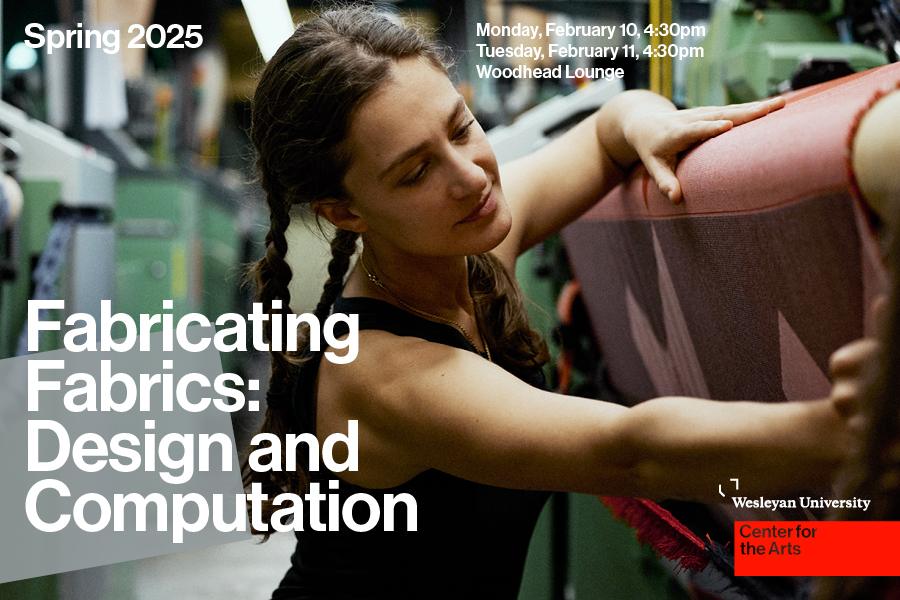
Fabricating Fabrics: Design and Computation
Monday, February 10, 2025 at 4:30pm
Woodhead Lounge, Exley Science Center, 265 Church Street, Middletown
Free and open to the public
Tuesday, February 11, 2025 at 4:30pm
Woodhead Lounge, Exley Science Center, 265 Church Street, Middletown
Free and open to the public
Wesleyan students, faculty, and staff can RSVP on WesNest (for Monday and Tuesday), but reservations are not required.
The College of Design and Engineering Studies (CoDES) celebrates the new CoDES Textiles Hub on the fifth floor of the Exley Science Center. On Monday, February 10, fiber artist and designer Victoria Manganiello and 3D machine knitting researcher Megan Hofmann join Assistant Professor of Art and Design and Engineering Studies Yu Nong Khew and Assistant Professor of Computer Science and Design and Engineering Studies Sonia Roberts in a panel discussion on knitting as a modern computational manufacturing and design method. On Tuesday, February 11, computer scientist and 3D machine knitting researcher Megan Hofmann gives a talk on her current research.
Profiles
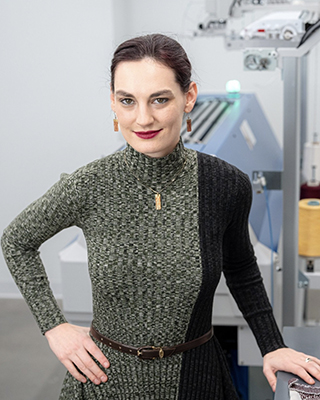
Megan Hofmann is an Assistant Professor of Computer Science and Mechanical Engineering at the Khoury College of Computer Sciences at Northeastern University, where she directs the Accessible Creative Technologies Lab. Hofmann is a leading accessibility and fabrication researcher. Her work on the emerging area of medical making, the application of digital fabrication in healthcare, has won multiple best-paper awards at Association for Computing Machinery conferences on Computer-Human Interaction and Computers and Accessibility, and the association's 2022 Special Interest Group on Computer-Human Interaction "Outstanding Dissertation" award. Additionally, she is a leader in the burgeoning field of automatic machine knitting. Hofmann received her PhD in Human-Computer Interaction from Carnegie Mellon University in 2022. For more information please visit https://www.megan-hofmann.com/
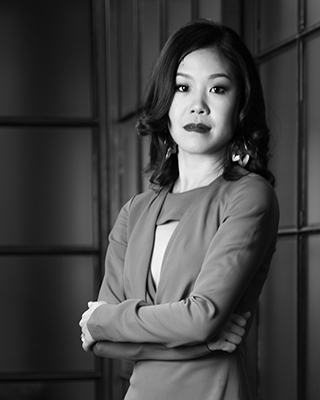
Yu Nong Khew's research focuses on zero waste and biodegradable design in the built environment and is cofounder of Cyklr Inc., a cleantech startup that supports urban composting for farmers. The work focuses on decentralization of organic waste by re-examining building systems in the constructed environments to support food security in urban communities. She is also one of the principal investigators of Growery Collective, a group of researchers examining how to design with living organisms such as mycelium and grass. Khew’s current research and design work range from an interior building compost system, to 100% biodegradable interior and lifestyle products grown from mycelium. She has been exhibited internationally, and was named by Architectural Review as one of ten emerging design voices from around the world. Khew’s work also received the top prize for the American Institute of Architects (AIA) Los Angeles Chapter’s 2x8 Verge award. More recently, she was named "Women of Our Time" in Singapore and currently serves as a World Cities Summit Young Leader. Khew has a Master of Architecture from SCI-Arc, and a Bachelor of Arts in Architecture from the National University of Singapore. Khew previously held positions at Parsons The New School for Design, Columbia University Graduate School of Architecture, Planning and Preservation, and Singapore University of Technology and Design, in collaboration with MIT and Southern California Institute of Architecture (SCI-Arc), before joining Wesleyan University's Art and Art History Department where she currently teaches Product Design Studio. Khew has worked with award winning design practice Zaha Hadid Architects, and served as Project Director at Asymptote Architecture, where she directed numerous projects ranging from a line of smart lighting products to a master plan for a new city incorporating interior robotic and smart technologies. For more information please visit her Wesleyan faculty page.
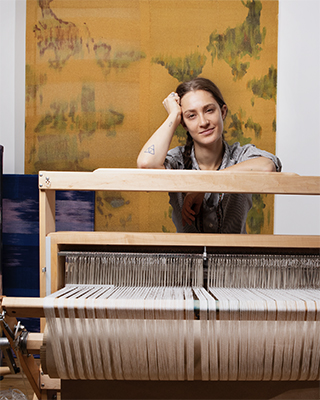
Victoria Manganiello is an artist, designer, organizer and educator. She is the co-founding director of Craftwork, an art and design studio exploring the intersections of textiles and technology. She is a part-time associate professor of textiles at New York University and Parsons School of Design. Manganiello’s work has been featured in Hyperallergic, The New York Times, Blouin ArtInfo, Forbes, and Architectural Digest, among others. Manganiello has received multiple internationally recognized grants, commissions, and residency appointments including from New Inc., Wave Farm, S&R Foundation, Forbes, Center for Craft, The Wall Street Journal, Harvest Works, STARTS Prize, and AIR Gallery. She has exhibited her work internationally including in Taiwan, Australia, across Europe, and throughout the United State including at the Tang Museum, Museum of Art and Design, Ars Electronica, BOZAR, Indianapolis Museum of Contemporary Art, The Armory Center, and the Queens Museum. Manganiello also co-organizes an annual artist residency for e-textile practitioners called "electronic textile camp" and facilitates many socially engaged projects in collaboration with other artists, designers, and educators. Exploring the intersections between materiality, technology, geography, and storytelling, Manganiello’s multi-disciplinary and installation work, abstract paintings, and kinetic sculptures are made meticulously with hand-woven textiles using hand-spun yarn and hand-mixed natural and synthetic color dyes alongside mechanical alternatives and modern technologies. For more information please visit https://www.victoriamanganiello.com/
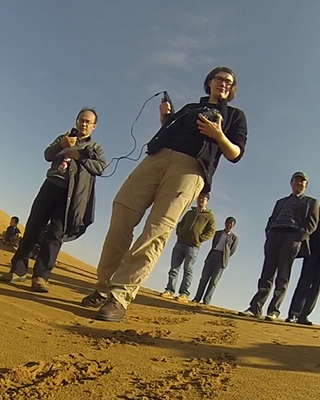
Sonia Roberts is an Assistant Professor of Computer Science and Design and Engineering Studies at Wesleyan University working on soft, knitted sensors and actuators for soft robot skins. In 2023, she completed a postdoc with Professor Kris Dorsey at Northeastern as part of the Institute for Experiential Robotics, where Roberts worked on soft origami sensors. She received her PhD in Electrical and Systems Engineering from the University of Pennsylvania in 2021, where she worked with Professor Dan Koditschek in the GRASP Lab to develop a reactive controller to reduce the energetic cost of transport for legged robots on sand. Prior to to Penn, Roberts worked at Janelia Farm Research Campus on a team building a rough behavioral map of the fruit fly brain. Roberts’ undergraduate degree is from Vassar College, where she studied Cognitive Science and worked with Professor John Long to use biologically inspired robots to test hypotheses about the evolution of early vertebrates during the Cambrian explosion. Roberts’ research focuses on the morphological design and control of robots, asking questions like how detailed a model of the environment a robot needs, why a robot might need legs or wheels for different tasks, and what the trade-off is between robustness and plasticity when implementing aspects of a robot's control using morphology versus actuated degrees of freedom. Roberts is currently developing a research program to address these questions using soft, knitted robots. As an automated 3D manufacturing method, knitting provides an opportunity to develop robots with arbitrary morphologies. Roberts is currently building knitted sensor modules which can be incorporated into a robot body. For more information please visit https://www.soniarobots.com/
Top image: Fiber artist and designer Victoria Manganiello